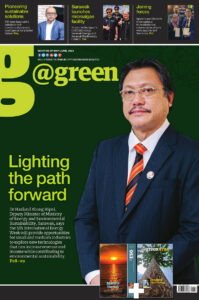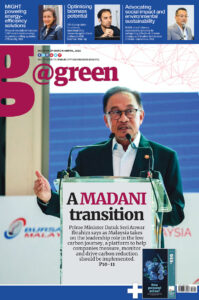Local councils and developers show much interest to implement smart cities in Malaysia. It is an excellent effort as it will help to tackle sustainability.
However, many people, including city developers, often associate smart cities with the advancement of technology without understanding its real meaning. This kind of idea may lead to the failure of smart cities.
During a forum at City Expo Malaysia 2021, Brice Richard, Smart City Consulting Lead at ARUP Singapore, explained why some smart cities failed to achieve their intended outcome.
“The core definition of a smart city is any city that is using technology to make either its living experience better or to make it run more efficiently or cheaply,” said Richard.
According to Richard, the growing interests in implementing smart cities were attributed to the rising urban challenges, resource limitations and technological breakthroughs. However, not all these smart cities were created equal.
“When people talk about smart cities, they would be talking about different things (depending on the region).
Types of smart city
Richard said there were three main types of smart cities. The first one is the commercial model. He explained that this model is standard in Southeast Asia and essentially implemented by real estate developers from the private sector. He gave KLCC and Cyberjaya as examples.
“These are essentially projects that real estate developers see as an opportunity to enhance the services that will be provided to the residents or the tenants of office buildings. Because they are massive, they’re called smart cities.”
The second type of smart city is the civic model. Civil models are smart city initiatives driven by citizens, including startups, associations, NGOs, and civil society.
“They are coming up with initiatives on the ground to help the elderly or to improve traffic. It’s coming from people bottom-up. You will find that a lot in Europe. Barcelona and Finland are some good examples.”
“The third one is the one that is happening in Singapore is an institutional model. It is a model that is essentially driven by the government where the government comes up with a big master plan and puts a lot of money to drive its implementation.”
Richard said some key smart cities technology that enabled many things in the city included the internet of everything, augmented experiences, advanced analytics and social platforms. Smart cities could also impact access and mobility, environment and sustainability, security and safety, public services, urban systems and liveability and vibrancy.
Richard shared that Malaysia had been investing in the journey towards smart cities since 1996. The effort culminated in the recent Malaysia Smart City Framework (MSCF). The mission of MSCF was to coordinate the development of smart cities holistically in line with national and global agendas.
“What we’ve seen in the last 20 years, the smart city projects in Malaysia have completely multiplied. We’ve invented more than 100 smart city projects that are currently going on or have been recently going on nationally.”
According to Richard, a large portion of the projects inventoried focuses on aspects such as follows:
• Setting Malaysia’s key digital infrastructure and capabilities
• Creating large scale integrated data and software platforms (like data hubs and control centres)
• Improving transportation and mobility
Why do smart cities fail?
“City operators, city officials and city developers see technology as a miracle cure that is going to solve the problem. They see blockchain, artificial intelligence and machine learning like they’re going to solve everything.
“Meanwhile, technology vendors like Samsung, IBM, Microsoft, etc., see smart cities as a great opportunity to sell their technology,” shared Richard.
However, he said there was a considerable gap between reality and what happens on the ground. The gap led to many empty smart cities, unused and broken
technologies. Many cities came up with fancy plans but were not followed by on-ground implementations and, at worst, included irrelevant technologies and infrastructure.
“For example, Apple creates a brand new campus packed with technology, but they forgot to include a daycare. So, sometimes technology distracts (people) from the important things,” he added.
Richard said three main reasons for this usual scenario were: the focus on technology rather than outcomes, siloed approaches and lack of focus and relevance.
He stated that many developers and officials started with technology and tried to cram them on their sites without understanding what they were trying to achieve. As a result, the elements of the developments were not seamlessly integrated to reach the site’s outcome.
He then shared other reasons why smart cities were more a dream than a reality. The reasons include:
• Lack of leadership interest and only do it for marketing
• Governmental fragmentation and lack of communication between stakeholders
• The schism between national level and local level authorities
• Funding gaps and limited ability for private and public to work together
What can we do about it?
While the failure of smart cities could be addressed in several ways, Richard shared some recommendations to enhance the deployment of smart cities, specifically in Malaysia.
The recommendations were:
• Further develop smart city technology standards
• Combine national-level strategy with municipal implementation
• Create a holistic public data management framework
• Ensure digital infrastructure are deployed with inclusivity
• Move on to a full-spectrum cyber security strategy
• Adopt alternative smart city financing methods
• Streamline and centralise public sector digital service delivery
• Coordinate technology procurement
• Further empower smart city research and innovation
“Technology is not a miracle. It won’t solve all your issues. But, if your city is attractive and you want to make your city efficient and better for people, you can use technology as an added value. However, it won’t be the main reason why people move (to the city).” — @Green








